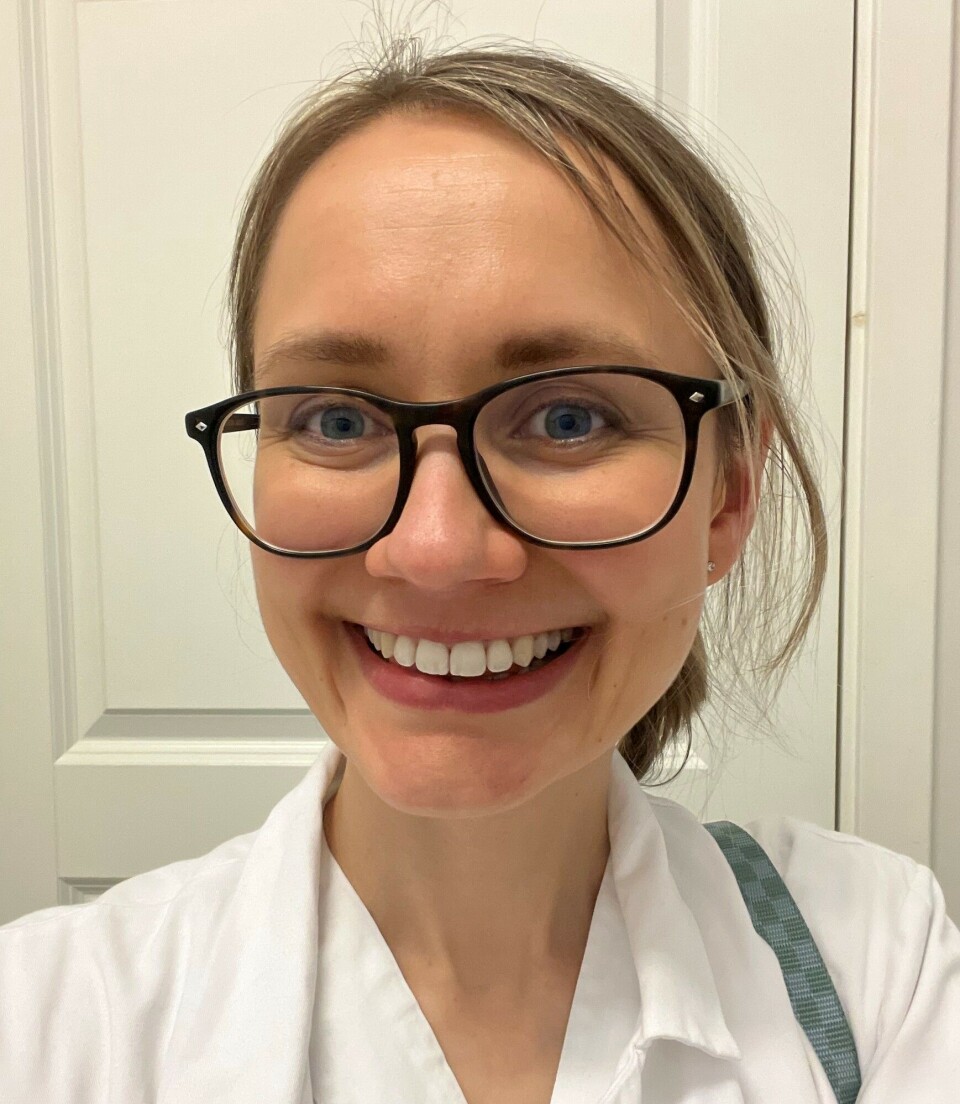THIS CONTENT IS BROUGHT TO YOU BY University of Oslo - read more
Promising news for patients with Crohn's disease
Results from a Norwegian study provide reason for optimism. More patients with Crohn's disease now experience a milder illness than before, and fewer require surgery.

Crohn's disease is a serious inflammatory bowel disease (IBD) that impacts millions worldwide.
The disease is chronic and highly unpredictable. It can cause symptoms such as abdominal pain, diarrhoea (sometimes with blood), and severe fatigue.
The inflammation can also cause narrow sections in the intestines, and can form channels from the intestines to other organs, known as fistulas.
For many, the disease has a significant impact on their lives. It can be challenging to spend time with others, go to school, work, or participate in leisure activities.

Recent findings from Norway now give cause for optimism.
The IBSEN III research initiative followed over 400 adults with Crohn's disease between 2017 and 2019.
One year after diagnosis, most patients reported few or no symptoms.
“This is good news and provides cause for optimism,” says Charlotte Lund, a PhD candidate at the University of Oslo and a physician at Oslo University Hospital.
Crohn's patients experience milder symptoms
Crohn's disease can affect the entire digestive system.
In this study, however, 80 per cent of the patients were diagnosed with uncomplicated Crohn's disease. This means there is inflammation in the intestines, without severe complications such as intestinal narrowing or fistulas.
Additionally, half of the patients had inflammation only in the small intestine.
This suggests that more patients now have a milder form of Crohn's disease at the time of diagnosis.
“We believe this may be because patients are being diagnosed earlier. Partly due to increased awareness of the disease, encouraging earlier doctor visits, and improved diagnostic practices,” says Professor Marte Lie Høivik. She leads the IBSEN III research initiative.
Biological medications can be crucial for IBD
Biological medications have revolutionised the treatment of Crohn's disease in recent decades. The medications used today differ greatly from those used in the 1990s, when the first IBSEN study took place.
Biological medications target the part of the immune system that causes inflammation in Crohn's disease. They are called 'biological' because they are derived from biological materials, as opposed to drugs that are synthetically produced.
Within a year of diagnosis, nearly 40 per cent of the patients with Crohn's began treatment with biological medications.
“Early initiation of biological treatment can be crucial in slowing disease progression and reducing the risk of complications,” Lund explains.
Fewer Crohn’s patients require surgery
For patients with severe complications, surgery remains a vital part of treatment.
The study showed that fewer Crohn's patients now require surgery than before.
Researchers compared one-year data from this study with one-year data from the first IBSEN study from the 1990s. The data shows a significant decline in the number of patients needing surgery, from about 16 per cent to just 5 per cent.
“Milder disease at diagnosis and early initiation of biological medications might be contributing factors,” says Vibeke Strande.
She is a PhD candidate at the University of Oslo and a senior consultant at Lovisenberg Diaconal Hospital.
Insight into disease progression over time
Patients involved in the IBSEN III study were diagnosed between 2017 and 2019. During these years, anyone diagnosed with Crohn's disease in South-Eastern Norway had the opportunity to participate in the study.
“Since South-Eastern Norway covers an area equal to over half of Norway's population, the study can provide a good picture of how Crohn's patients are faring across Norway today,” says Lund.
IBSEN III is primarily a descriptive study, and is not designed to establish causative factors. However, its comparative approach provides valuable insights into the shifts in disease progression over time.
“By comparing data from IBSEN and IBSEN III, we can gain insight into how the disease progression has changed over time, especially before and after the introduction of biological treatment,” she says.
Would not have been possible without the patients
The researchers aim to continue following these patients' progress, with five-year evaluations and data analysis already underway.
“We hope that these positive trends continue and that the patients also experience long-term improvements,” says Lund.
She highlights how important it is that patients participate in the study.
“The commitment of our participants is what enabled this research. By attending check-ups and sharing experiences, they contribute invaluable knowledge about Crohn's disease and how treatments can be improved in the future, ” she says.
Reference:
Lund et al. Low Surgery Rates in Early Crohn's Disease: Results from a Prospective Population-Based Inception Cohort—The Inflammatory Bowel Disease in South-Eastern Norway III Study, Inflammatory Bowel Diseases, 2024. DOI: 10.1093/ibd/izae297
———
Read the Norwegian version of this article on forskning.no

This content is paid for and presented by the University of Oslo
This content is created by the University of Oslo's communication staff, who use this platform to communicate science and share results from research with the public. The University of Oslo is one of more than 80 owners of ScienceNorway.no. Read more here.
More content from the University of Oslo:
-
Mainland Europe’s largest glacier may be halved by 2100
-
AI makes fake news more credible
-
What do our brains learn from surprises?
-
"A photograph is not automatically either true or false. It's a rhetorical device"
-
Queer opera singers: “I was too feminine, too ‘gay.’ I heard that on opera stages in both Asia and Europe”
-
Putin’s dream of the perfect family





































